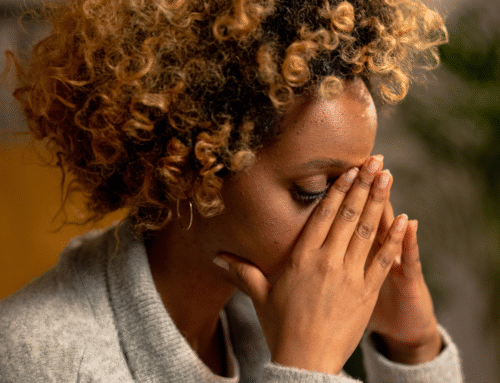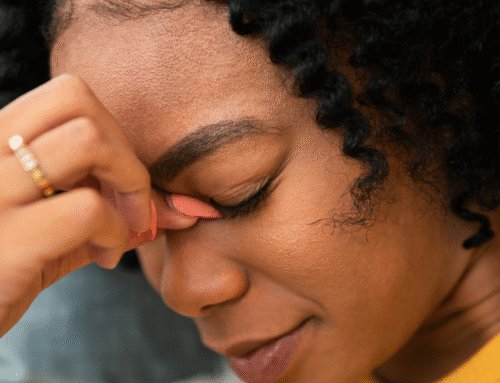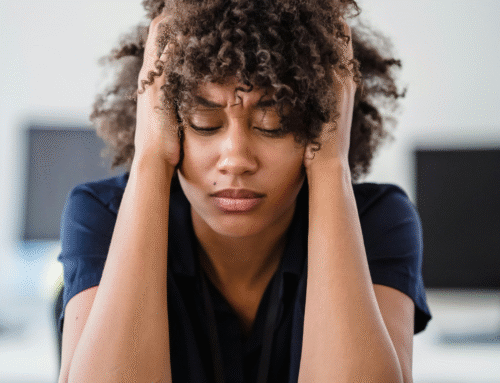We’ve all experienced it: a restless night caused by nagging pain, or waking up sore and stiff after poor sleep. What many don’t realize is just how deeply connected pain and sleep truly are.
If you’re struggling with chronic pain or frequent sleep disruptions, you’re not alone—and you’re not imagining things. Pain and sleep impact each other in a powerful cycle. The good news? Understanding this connection is the first step toward relief.
🔄 The Vicious Cycle: Pain Disrupts Sleep, Poor Sleep Increases Pain
Modern research confirms what Traditional Chinese Medicine (TCM) has known for centuries: poor sleep and pain feed into each other.
Here’s how the cycle works:
-
Pain makes it hard to fall asleep or stay asleep.
Aches, inflammation, or stiffness can keep the nervous system on high alert, preventing deep rest. -
Sleep deprivation increases pain sensitivity.
Studies show that even one night of poor sleep can lower your pain threshold and increase inflammation. -
Fatigue reduces your ability to manage discomfort.
When you’re tired, your body and mind are less resilient. Even mild pain can feel overwhelming.
In TCM, this imbalance is often viewed as a disruption in Qi, Blood, or Yin, which can cause both discomfort and insomnia.
🌿 The TCM View: Why You Hurt & Can’t Sleep
In Traditional Chinese Medicine, pain and insomnia often share the same root causes—an internal disharmony.
Here are some common TCM patterns that explain the pain-sleep connection:
1. Liver Qi Stagnation
-
Pain: Muscle tension, headaches, PMS pain
-
Sleep: Difficulty falling asleep, vivid dreams
-
Cause: Stress, emotional repression, frustration
2. Blood Deficiency
-
Pain: Dull aches, especially in joints or limbs
-
Sleep: Light sleep, frequent waking, anxiety
-
Cause: Poor diet, overwork, long-term illness
3. Yin Deficiency with Empty Heat
-
Pain: Burning pain, nerve-related discomfort
-
Sleep: Trouble falling asleep, night sweats, hot flashes
-
Cause: Chronic illness, menopause, long-standing stress
4. Qi and Blood Stagnation
-
Pain: Sharp, fixed pain (e.g. arthritis, post-injury)
-
Sleep: Restlessness, waking with pain at night
-
Cause: Poor circulation, cold invasion, trauma
💤 Natural Ways to Break the Pain-Sleep Cycle
You don’t need to rely solely on medication to manage your pain or improve your sleep. TCM and holistic practices offer effective, gentle support.
🔥 1. Acupuncture for Pain and Sleep
Acupuncture regulates the nervous system, reduces inflammation, and helps the body return to balance. It’s been shown to improve both chronic pain and insomnia.
TCM Tip: Points like Anmian (peaceful sleep) and SP6 (Sanyinjiao) help calm the mind and soothe pain simultaneously.
🌿 2. Herbal Medicine for Deeper Sleep and Pain Relief
Herbal formulas can tonify deficiencies, move Qi, and calm the spirit. A few examples:
-
Suan Zao Ren Tang: Nourishes Blood and Yin, calms the mind
-
Jia Wei Xiao Yao San: Moves Liver Qi, reduces stress-related tension
-
Du Huo Ji Sheng Tang: Alleviates chronic joint pain with underlying deficiency
Always consult a licensed herbalist—formulas should match your pattern, not just symptoms.
🧘♀️ 3. Gentle Movement to Circulate Qi
Daily movement reduces pain and promotes better sleep.
Try:
-
Tai Chi or Qi Gong for calming the nervous system
-
Yoga to stretch muscles and reduce stiffness
-
Walking—especially outdoors—for better mood and circulation
🧴 4. Heat Therapy Before Bed
Warmth promotes circulation and relaxes the muscles.
Try:
-
A warm bath with Epsom salts and a few drops of lavender
-
A heating pad on tight areas (neck, back, hips)
-
Ginger compresses or moxa therapy to warm meridians
🕯️ 5. Create a Sleep-Friendly Routine
Good sleep hygiene helps signal the body that it’s time to rest, even when pain is present.
-
Dim lights an hour before bed
-
Avoid screens and stimulating content
-
Do breathing exercises or meditation to wind down
-
Go to bed and wake up at the same time daily
TCM Bonus Tip: Massaging Kidney 1 (Yongquan) on the soles of your feet before bed can help ground your energy and promote rest.
✨ Final Thoughts
Pain and sleep are deeply connected—not just physically, but energetically. In Chinese medicine, pain is often a sign that your body’s energy is stuck or depleted. When that balance is restored, both sleep and comfort improve naturally.
If you’re caught in the pain-sleep loop, don’t wait for it to spiral further. Work with a trusted TCM practitioner to uncover the root cause of your discomfort and restore the harmony your body is craving.
🛌 Your body heals when you sleep. Let TCM guide you back to restful nights and pain-free days.







Leave A Comment